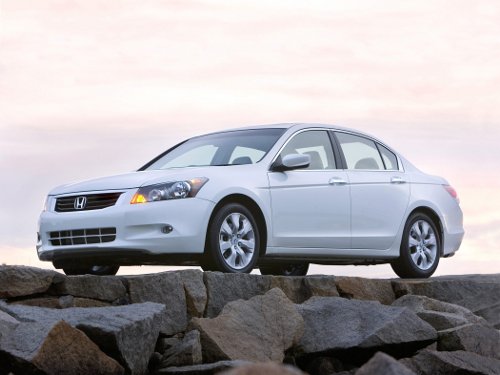-
2018 Buick Enclave “Avenir” will have ionic air purifier - April 12, 2017
-
Lease a Luxury Car for Less Than You Think - April 5, 2017
-
Shopping for a Car When Your Credit is Low - March 31, 2017
-
Aston Martin Closer to Unveiling Second-Generation Vantage - March 21, 2017
-
2017 Bentley Bentayga SUV: Offroad for $238,000 and Up - March 14, 2017
-
Pagani Huayra is Finally Here, Only $2.4M - March 9, 2017
-
Mercedes AMG E63 – For When Your Wagon Needs Drift - February 6, 2017
-
2018 Audi Q5 SUV: Enhanced Performance - January 30, 2017
-
2018 Toyota Camry Due in Late Summer - January 27, 2017
-
2018 Dodge Challenger SRT Demon Will Outstrip Hellcat - January 23, 2017
What to Do Before the New Credit Card Act Starts This Month
Consumers who are in the market for a car loan this year may want to review their credit scores to see where they stand. If improvements need to be made, they’ll have time to boost their credit scores to get the best possible rate on an auto loan.
The Credit Card Act of 2009 starts Feb. 22. The way you handle revolving debt like credit cards is one of the major factors that is considered in your credit score. A major credit line decrease or an involuntary account closure could drop your score, leaving you paying a higher interest rate for that new car.
CreditCards.com has five suggestions for things consumers should do before the new rules start on Feb. 22:
- Consider waiting to get new credit cards until after Feb. 22 because new accounts are protected from interest rate increases for the first year. As issuers compete for new customers in the new reform law landscape, there may be good deals and offers for people with good credit.
- For existing accounts, consider doing a balance transfer from higher interest rate cards to accounts with lower APRs. Some issuers are offering good customers balance transfers of at least a year. Remember that there is a cost of 3 percent or 4 percent of the amount transferred, so weigh that decision carefully. Also, take note of what the new interest rate will be AFTER the promotional period ends. If it’s higher than the rate on the old card or only a few points lower, it may not be worth it to switch.
- Have a Plan B backup card or two: Issuers can still lower your credit limit and close your account without advance notice. Make sure you have more than one card as a backup in case this happens to you and you need a credit card for emergencies.
- Charge a small amount on those other cards every other month and pay it off in full when the bill comes. This avoids any dormancy fee that may be assessed and may prevent the company from closing the account for inactivity. Some issuers require a minimum amount of charging to avoid inactivity fees, so check your terms.
- Young adults’ access to credit will be restricted by the new law. For college students or anyone under 21 who is responsible with credit, the best move could be to get a credit card now while you still can on your own. After Feb. 22, you will have to get an adult (over 21) co-signer and may be asked to show proof you have the ability to pay.
CreditCards.com also reminds consumers to follow the normal credit advice, like paying your bills on time, paying more than the minimum and opening and reading all of your mail from your credit card companies so you’ll know about any changes to your account.

If we’ve said it once, we’ve said it a million times. Your credit score directly affects your ability to get approved for a car loan.














